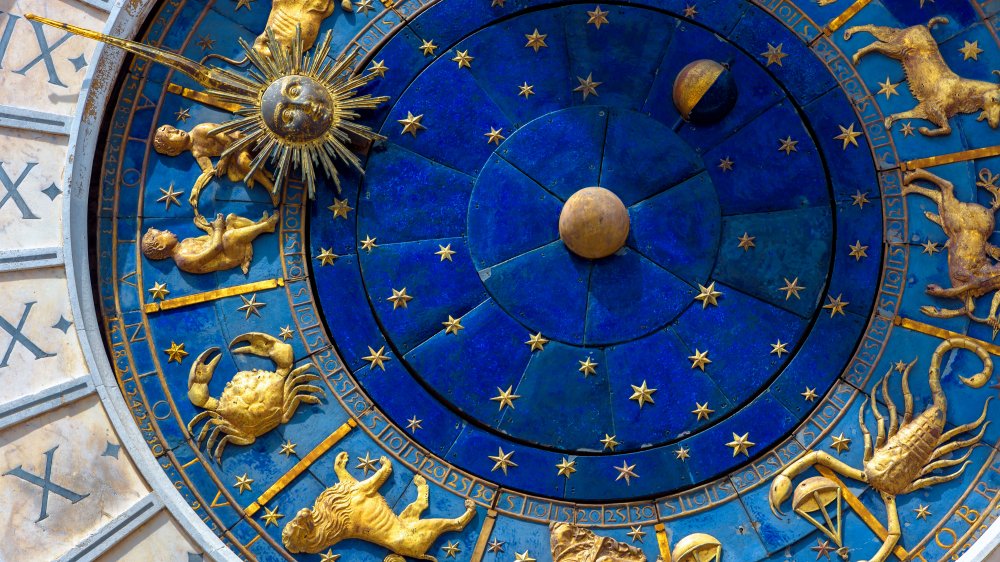The Truth About NASA And The Zodiac
NASA must be in charge of this stuff. After all, the agency's name is the National Aeronautics and Space Administration (emphasis added, but you probably knew that) which, as any clear-thinking individual would determine, means they're in charge of star stuff. As they explain on their website, NASA "is responsible for unique scientific and technological achievements in human spaceflight, aeronautics, space science, and space applications." Surely star applications fall in there somewhere. (Space Force — the real one, not the one on Netflix — was only founded in December 2019, so it's understandable that it might be a while before they're completely up to speed on everything.)
From the get-go there have been rumors about NASA, what it does, who does it, where, all of that. The Internet has done nothing if not turn just about anybody into an "investigative journalist," and so NASA-centric stories abound — the first moon landing was a hoax, Tang was invented for space travel nourishment (actually, it was invented by the same guy who came up with Pop Rocks and Cool Whip, says Discover Magazine).
So in addition to all of that boldly-going-where-etc.-etc. that NASA does, there are bound to be the occasional addition to the rumor mill. One is that the agency has shifted the star calendar used in astrological circles, thereby throwing off calculations, and added another sign to make the whole shebang more accurate, if that isn't a contradiction in terms, as CNN reports.
NASA is more concerned with reaching stars than with reading them
Apparently there's a relatively wide-spread rumor going around that not only has NASA shifted the calendar, but has added a new sign to the traditional 12-sign lineup of the zodiac (which, to be clear, is astrology). The sign is reported to be Ophiuchus, and NASA has been doing a big "nope" about the sign's inclusion.
For one thing, Ophiuchus isn't actually a new sign. It was used by the Babylonian astrologers, but dropped when they opted for a 12-month year instead of 13 — according to The Independent, "the Babylonians decided to leave it out for the sake of neat division," which is as good a reason as any. It would have roughly lined up with November 29-December 17 on our calendars, says Time, if it hadn't been nixed about 3,000 years ago. For another thing, it's very much out of NASA's purview, which includes, among other areas of scientific inquiry, astronomy — not astrology. As NASA states so very succinctly, "Astronomy is the scientific study of everything in outer space. Astronomers and other scientists know that stars many light years away have no effect on the ordinary activities of humans on Earth. Astrology is something else. It's not science."
So no worries about having to hustle up an Ophiuchus pendant for that special friend's birthday. At least, not if your friend works at NASA.

